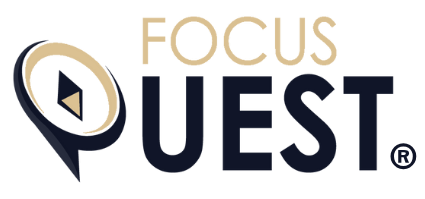🚀 Study Smarter, Not Harder: Proven Learning Techniques That Actually Work
- September 1, 2025
Share on Social Media
Why Smart Studying Beats Long Hours
The Myth of Overstudying
Many students believe that studying for endless hours automatically leads to better grades. But science tells a different story. Research shows that cramming for long periods without breaks actually leads to mental fatigue and low retention.
Cognitive Load and Brain Fatigue
Your brain has a limit to how much it can process and retain at one time. Trying to absorb too much, too fast overwhelms your working memory. This is called cognitive overload, and it prevents information from moving into long-term memory.
What It Means to “Study Smarter”
Efficiency vs. Effort
Studying smarter doesn’t mean slacking off. It means using the most effective techniques so you can retain more information in less time. Think quality over quantity.
Using Science to Your Advantage
Psychologists have studied how the brain learns best. Methods like active recall, spaced repetition, and dual coding are proven to boost memory, understanding, and application.
Active Recall: The #1 Most Effective Study Technique
How Active Recall Works
Instead of passively rereading your notes, active recall forces your brain to retrieve information. This strengthens neural pathways and improves memory retention.
Flashcards, Practice Tests, and Self-Quizzing
Try these approaches:
- Use flashcards to test yourself
- Cover up notes and recite answers aloud
- Take practice quizzes regularly
- Teach the topic to someone else
Best Apps for Active Recall
- Anki – Spaced flashcards with recall tracking
- Quizlet – Interactive flashcard and game-based recall
- Brainscape – Ranked confidence levels on flashcards
Spaced Repetition: The Secret to Long-Term Memory
What Is Spaced Repetition?
It’s a technique where you review material multiple times over increasing intervals. This counters the “forgetting curve,” a psychological principle that shows how quickly we forget new info.
How the Forgetting Curve Works
If you study something once, you’ll forget most of it within days. But if you revisit it over time—say Day 1, Day 3, Day 7, Day 14—you lock it into long-term memory.
Tools to Automate Spaced Reviews
- Anki (uses a spaced repetition algorithm)
- RemNote and SuperMemo
- Google Calendar or Notion for scheduling reviews
The Science of Note-Taking: Capture and Retain Information Better
Cornell Notes vs. Outline vs. Mapping Method
- Cornell Method: Divides your page into cue, notes, and summary sections
- Outline Method: Structured by headings and bullet points
- Mapping Method: Visual diagrams showing relationships
Digital vs. Handwritten Notes
Handwriting engages more parts of your brain and improves recall. But digital tools like Notion, OneNote, and Evernote offer searchability, organization, and multimedia integration.
Common Note-Taking Mistakes
- Copying word-for-word
- Highlighting everything
- Not reviewing your notes
The Role of Retrieval Practice in Exam Preparation
What Is Retrieval Practice?
It’s the act of actively bringing information to mind—essentially testing yourself. Unlike rereading or rewatching, retrieval practice builds strong memory traces.
How to Apply It in Your Study Routine
- Weekly quizzes
- Question banks
- Writing short summaries from memory
- Verbal recall with a friend
Interleaving and Mixing Subjects for Deeper Learning
How Interleaving Improves Flexibility
Interleaving means switching between topics or problem types instead of studying one subject in blocks. It helps your brain learn to distinguish between concepts and apply them flexibly.
When to Use Blocked vs. Mixed Practice
- Use blocked practice when first learning a topic
- Use interleaved practice to prepare for exams or real-life application
Dual Coding: Combining Words and Visuals for Maximum Retention
Using Diagrams, Mind Maps, and Charts
Your brain processes visual and verbal information separately. Combining them strengthens memory. Try:
- Flowcharts for processes
- Diagrams for anatomy or systems
- Mind maps for brainstorming and essay planning
Tools for Visual Note-Making
- Miro
- Canva
- Lucidchart
- Hand-drawn notes with colored pens
Feynman Technique: Learn by Teaching
How to Use the Feynman Technique
- Choose a concept
- Explain it in simple terms
- Identify gaps in understanding
- Review, refine, and repeat
Real-Life Applications
- Teach a friend
- Record yourself explaining it
- Use a whiteboard for visual teaching
Digital Study Tools to Enhance Your Study Routine
Quizlet, Anki, Notion, and More
Tool | Best For |
Anki | Spaced repetition |
Quizlet | Flashcards and games |
Notion | Organizing study materials |
Evernote | Syncing handwritten notes |
Forest | Staying focused |
Time Management Apps for Students
- Toggl Track: Time logging
- MyStudyLife: Schedule and assignments
- Pomofocus: Pomodoro-based productivity
Avoid These Common Study Pitfalls
Passive Rereading and Highlighting
These feel productive but don’t actually help with memory. They’re low-effort and give a false sense of learning.
Multitasking During Study Time
Studying with distractions reduces learning quality. Turn off notifications and use website blockers.
Cramming vs. Consistency
Cramming increases stress and reduces retention. Instead, space your learning over days or weeks for better outcomes.
Build a Smart Study Plan That Works for You
Planning Around Your Productivity Peaks
Track when your energy and focus are at their best—morning, afternoon, or evening. Plan your hardest subjects during your “peak hours.”
Creating Weekly Learning Goals
Break subjects into weekly tasks, like:
- Monday: Review biology chapters 3–5
- Tuesday: Take practice quiz
- Wednesday: Flashcard review
- Thursday: Teach concept out loud
Study Smarter with Group Learning and Peer Teaching
Why Explaining Concepts Out Loud Helps
When you explain something, you identify knowledge gaps and strengthen your memory.
Finding a Study Buddy or Group
- Pair up with someone from your class
- Join Discord or Reddit study servers
- Use Zoom or Google Meet for group review
FAQs: Learning Techniques That Actually Work
- What is the most effective study method?
Active recall combined with spaced repetition is considered the most effective for memory and understanding.
- How many hours a day should I study?
Quality matters more than hours. Aim for 2–4 hours of focused study with breaks.
- Is it better to study at night or in the morning?
It depends on your personal rhythm. Identify your peak focus times.
- Are digital flashcards better than paper?
Both work, but digital tools like Anki offer spaced repetition and easier organization.
- How can I stay focused while studying?
Use timers (Pomodoro), eliminate distractions, and study in short, intense sessions.
- How do I avoid burnout while preparing for exams?
Take breaks, stay active, get enough sleep, and use smart techniques to avoid overworking.
Conclusion: Master the Art of Studying Smarter
Learning doesn’t have to be a struggle. With techniques like active recall, spaced repetition, and dual coding, you can transform the way you study—and the results you get.
Small changes make a big difference. Start studying smarter today and watch your confidence and grades soar.
facts corner
Featured Articles
-
The Divine Nine: History of Black Sororities and Fraternities
-
James M. Jeter '13 Makes History as Ralph Lauren’s First Black Creative Director
-
The Surge in HBCU Enrollments: Why More Students Are Choosing HBCUs
-
The Role of Mental Health in Academic Success
-
The Power of Peer Support: Finding Your Study Tribe
-
How to Balance Work, Study, and Life as an Adult Learner


